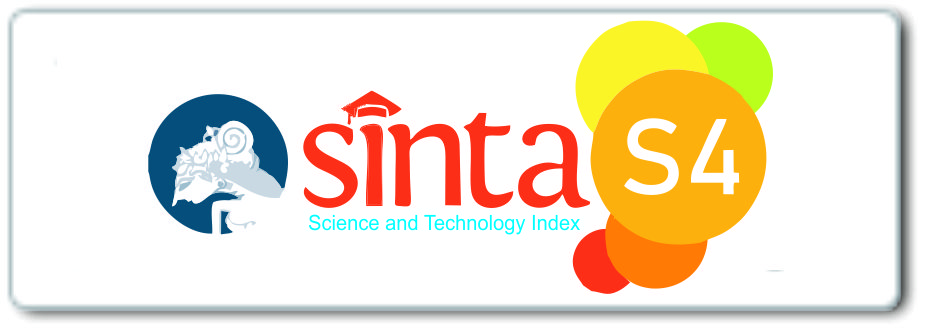ACCREDITATION
Publication Ethics
Publication Ethics
Etihad: Journal of Islamic Banking and Finance is a peer-reviewed journal committed to upholding the highest standards of publication ethics and integrity. This statement is adapted from the Committee on Publication Ethics (COPE) — Best Practice Guidelines for Journal Editors to ensure ethical conduct and responsible scholarly communication among authors, editors, reviewers, and publishers.
1. Ethical Guidelines for Authors
Authors are responsible for ensuring that their submitted manuscripts meet the following ethical standards:
-
Originality and Plagiarism
-
Authors must submit only original works that have not been published elsewhere and are not under review by another journal.
-
Proper citation and acknowledgment must be given for all referenced materials.
-
The journal uses plagiarism detection software to verify originality.
-
-
Authorship and Contribution
-
Authorship should be limited to those who have made a significant contribution to the conception, design, execution, or interpretation of the research.
-
All co-authors must have seen and approved the final version of the paper and agreed to its submission.
-
-
Data Accuracy and Transparency
-
Authors must ensure that all data used in the manuscript are accurate and verifiable.
-
Fabrication or falsification of data is considered a severe violation of research ethics.
-
-
Multiple, Redundant, or Concurrent Publication
-
Submitting the same manuscript to more than one journal simultaneously constitutes unethical publishing behavior and is unacceptable.
-
-
Acknowledgment of Sources
-
Proper acknowledgment of the work of others must always be given. Authors should cite publications that have influenced their work.
-
-
Disclosure and Conflicts of Interest
-
Authors should disclose any financial or other substantive conflicts of interest that might be interpreted to influence the results or interpretation of their manuscript.
-
-
Reporting Errors
-
If authors discover significant errors or inaccuracies in their published work, they must promptly notify the editor to correct or retract the paper.
-
2. Ethical Guidelines for Editors
Editors play a crucial role in ensuring the integrity and quality of the publication process. They are responsible for the following:
-
Publication Decision
-
Editors are responsible for deciding which manuscripts are to be published based on their academic merit and relevance to the journal’s scope.
-
The decision must be free from bias, discrimination, or commercial considerations.
-
-
Fair Play and Confidentiality
-
Editors must evaluate manuscripts for intellectual content without regard to the authors’ race, gender, sexual orientation, religious belief, ethnic origin, or political philosophy.
-
Editors must ensure the confidentiality of all submitted manuscripts and must not disclose any information about a submission to anyone other than the corresponding author, reviewers, and publisher.
-
-
Peer Review Integrity
-
Editors must ensure a fair and objective double-blind peer review process.
-
Any potential conflicts of interest involving editors must be declared and managed appropriately.
-
-
Handling of Ethical Complaints
-
Editors must take appropriate action when ethical complaints are raised concerning a submitted or published paper, including investigating and working with authors and publishers to resolve issues such as plagiarism, data falsification, or authorship disputes.
-
3. Ethical Guidelines for Reviewers
Reviewers assist editors in making editorial decisions and improving the quality of manuscripts. Reviewers are expected to adhere to the following ethical principles:
-
Confidentiality
-
All manuscripts received for review must be treated as confidential documents. They must not be shared or discussed with others except as authorized by the editor.
-
-
Objectivity and Constructive Feedback
-
Reviews should be conducted objectively, with clear, reasoned arguments supporting the reviewer’s comments.
-
Personal criticism of the author is inappropriate.
-
-
Acknowledgment of Sources
-
Reviewers should identify relevant published works that have not been cited by the authors and alert the editor to any substantial similarity or overlap between the manuscript under review and other published papers.
-
-
Conflict of Interest
-
Reviewers must decline the review if they have conflicts of interest arising from competitive, collaborative, or other relationships with any of the authors or institutions connected to the paper.
-
4. Duties of the Publisher
The publisher, UIN Kiai Ageng Muhammad Besari Ponorogo, ensures that all stages of publication uphold ethical and professional standards. The publisher commits to:
-
Supporting editors and reviewers in handling ethical issues transparently and fairly.
-
Maintaining the integrity of the academic record by publishing corrections, clarifications, and retractions when necessary.
-
Ensuring that commercial revenue (advertising, reprints, sponsorship) does not influence editorial decisions.
-
Promoting academic freedom, research integrity, and responsible authorship within the field of Islamic banking and finance.
5. Allegations of Research Misconduct
If misconduct (e.g., plagiarism, data fabrication, falsification, or unethical research practices) is reported, the journal will follow COPE flowcharts to investigate and respond appropriately. Actions may include rejection, retraction, or notification to the authors’ institutions.
6. Retraction and Correction Policy
The journal adheres to COPE Retraction Guidelines:
-
Retraction: Issued if findings are unreliable due to misconduct or honest error, or if the work constitutes plagiarism or redundant publication.
-
Correction: Issued for minor errors that do not affect the overall conclusions of the paper.
-
All corrections and retractions will be clearly identified and linked to the original article.
7. Ethical Oversight
Etihad Journal ensures ethical oversight in research involving human participants, financial data, or institutional information. Authors must confirm that all ethical approvals and informed consents have been obtained when applicable.
8. Commitment to Ethical Publishing
Etihad: Journal of Islamic Banking and Finance is dedicated to promoting transparency, accountability, and scholarly integrity in every publication. All parties involved are expected to uphold these ethical principles to maintain trust in academic communication within the field of Islamic economics and finance.







